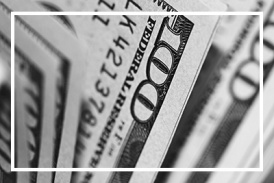Shaping the future of brand growth: Highlights from the 2025 AdForum Consultant Summit

AdForum Consultant Summit, NYC May 13th to 17th 2024
How AI, creativity, and collaboration are redefining the agency landscape
AI and Creativity: A new era of collaboration
One of the most striking takeaways from the Summit was the extensive influence of AI across the advertising ecosystem. While AI’s role has been a topic of debate for several years, it’s now clear that the future is AI-powered but human-led. Consultants and agency leaders agreed that AI is no longer just a tool for automating tasks; it has evolved into a creative collaborator that enhances human insight and drives strategic thinking.
Several agencies showcased how they are leveraging AI to streamline processes and improve the speed and precision of creative outputs. However, there was a consensus that AI’s true power lies in how it is integrated with human creativity. This shift is not about replacing creative minds but augmenting their capabilities, enabling agencies to generate ideas more quickly and at scale.
The importance of ‘Cultural Relevance’
Another critical trend that emerged at the Summit was the growing importance of cultural relevance in brand communications. In today’s hyper-connected world, customers are gravitating towards brands that understand and engage with their audience meaningfully. This trend was particularly evident in the presentations from agencies like Jung von Matt and Orchard Creative, which highlighted how localized cultural knowledge is integral to meaningful engagement.
Independent agencies are increasingly leading the charge in this space, using their agility and deep cultural insight to create authentic connections with audiences. These agencies are better positioned to respond quickly to shifts in consumer behavior and trends, making them invaluable partners for brands navigating a fragmented media landscape.
The shift in commercial models
The Summit also highlighted a growing shift in how agencies and clients are approaching commercial agreements. Traditional models, where agencies were compensated based on headcount or time spent, are being replaced by more dynamic, output-driven models. Agencies are now being paid for the impact they deliver, not just the hours they log. This move towards value-based compensation reflects the increasing demand for measurable results and business impact.
Consultants also noted that there’s a growing appetite for hybrid models that combine fixed fees, output-based fees, and licensing, offering greater flexibility and alignment with client goals. This shift is further accelerated by AI, which is making it easier for agencies to demonstrate the value of their work and track the impact of creative campaigns in real-time.
Agency chemistry
In addition to changing commercial models, there was also a noticeable shift in the way agencies approach pitches. Gone are the days of theatrical presentations and flashy case studies. Clients are now more interested in how agencies collaborate and how well their teams fit with the client’s culture. Collaboration and speed are paramount in the fast-paced world of advertising, which means the ability to work well with a client team is often the deciding factor in winning business.
Looking ahead
As the advertising landscape continues to evolve, agencies that are able to combine agility with a forward-looking vision will be best positioned for success. The 2025 AdForum Consultant Summit reinforced the idea that the future of advertising will be defined by agencies that are quick to adapt, innovative in their approach, and able to blend creativity with technology in ways that deliver tangible results for clients.
The second AdForum Summit of 2025 takes place in London, October 20th to 23rd.
Carol Mason
AdForum
email us here
Visit us on social media:
LinkedIn
Legal Disclaimer:
EIN Presswire provides this news content "as is" without warranty of any kind. We do not accept any responsibility or liability for the accuracy, content, images, videos, licenses, completeness, legality, or reliability of the information contained in this article. If you have any complaints or copyright issues related to this article, kindly contact the author above.
Oculus Eyecare Shares Its Vision for Community-Centered, Sustainable Eye Care
Kimberly Harding Group Joins Call It Closed International Realty, Expands Coastal Texas Reach with 25 Years of Expertise
From Panama to Pakistan: The International Forum Forging Low-Carbon Diplomacy
Kalendarium
Więcej ważnych informacji
 Jedynka Newserii
Jedynka Newserii

 Jedynka Newserii
Jedynka Newserii

Handel

Negocjacje między UE i USA w sprawie ceł trwają. Przełom możliwy podczas czerwcowej wizyty Trumpa w Europie
Czas, jaki Donald Trump zostawił krajom obłożonym cłami na negocjacje, zbliża się do półmetka. Umowę podpisała Wielka Brytania, ogłoszono również porozumienie z Chinami. Unia Europejska, która jest czwartym partnerem handlowym USA, do niedawna zdawała się nie czynić żadnych postępów w rozmowach. Jednak negocjacje trwają. Zdaniem europosła Michała Szczerby z PO stanowisko Unii powinno być twarde, a przede wszystkim jednomyślne. Okazją do rozmów może być wizyta Trumpa na czerwcowym szczycie NATO w Hadze.
Przemysł
Unijne programy szansą dla polskiego przemysłu zbrojeniowego. Wkrótce uruchomione będzie 150 mld euro na niskooprocentowane pożyczki

Prace nad uruchomieniem instrumentu pożyczkowego SAFE są na ostatniej prostej. Jak poinformował MON, po wielu tygodniach negocjacji został on przyjęty przez stałych przedstawicieli państw członkowskich przy UE. Wdrożenie SAFE oznacza uruchomienie 150 mld euro niskooprocentowanych pożyczek na finansowanie inwestycji państw członkowskich w obronność. Wysiłki krajowe i unijne koncentrują się teraz na zwiększaniu potencjału europejskiego przemysłu obronnego i budowaniu zdolności obrony i odstraszania.
Konsument
Roboty w służbie środowisku. Ograniczanie ilości odpadów możliwe dzięki automatyzacji

Sztuczna inteligencja i robotyka już dziś pomagają firmom ograniczać swój wpływ na środowisko. Korzyści z inwestycji w zaawansowaną automatyzację odczuwają także konsumenci. Przykładem może być automatyczny system pakowania wdrażany przez Amazon. Robot dostosowujący każdorazowo rozmiar papierowego opakowania do danego produktu pozwolił już zaoszczędzić 3 mln t materiału opakowaniowego, co oznacza dla kupujących mniej materiałów do utylizacji i prostszy recykling.
Partner serwisu
Szkolenia

Akademia Newserii
Akademia Newserii to projekt, w ramach którego najlepsi polscy dziennikarze biznesowi, giełdowi oraz lifestylowi, a także szkoleniowcy z wieloletnim doświadczeniem dzielą się swoją wiedzą nt. pracy z mediami.









.gif)

 |
| |
| |
|